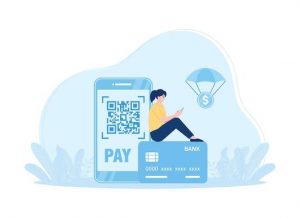Today’s on-the-go lifestyle can be tricky when you strive to attain a financial balance of your income and expenditure, without a budget & financial plan. You might need to resort to ‘financial fasting’ to remedy this situation and save yourself from digging a hole of financial penury.
A financial fast is a short-term ‘financial cleanse’ that helps you get your finances back in shape. Financial fasting involves only spending money on necessities (housing, food, utilities, and transportation to work) and cutting all other expenses. Living on a strict budget until you get back on track for your financial goals.
It is just like going on a diet to reduce weight or get that six-pack ab. You can’t continue to gorge on food and hope to attain any noticeable result. Cuts have to be made and some things stricken out from the menu completely. The same principle applies to financial fasting.
Many of us fall into lifestyle inflation due to the impulse to buy more expensive homes, cars, and vacations even if we’re not on track for our long-term financial goals. Financial fasting is the best way to become debt free, build an emergency fund, get on track for retirement, and move towards financial freedom. The first few months of adjusting your spending are painful until you adjust to your less-expensive lifestyle. Here are some tips to make the transition easier:
Differentiate Between Needs and Wants.
Your definitions of needs and wants are going to be different from other people’s. For example, while one person may consider a trip to the salon a want, some women might feel that it contributes to their professional image and therefore qualifies as a need.
Before you begin your financial fast, write down your wants and needs as you understand them. Knowing ahead of time can help take some of the temptations away. If you’ve already decided eating out is a want, it’s easier to decline an invitation from your friends.
Set your financial goals, in order.
This is a critical step that people often skip. You will make progress much faster if you know exactly what your next financial goal is. It is recommended you work on one goal at a time. This could be debt freedom, or have an emergency fund, or get on track for retirement.
Have a support group.
It’s important to surround yourself with people who support you in your financial goals. So, you may need to create boundaries with that friend who’s always trying to convince you to skip the gym and instead come over for pizza, nkwobi, suya, and beers. Tell your friends and family about your financial fast and let them know how they can be supportive (i.e., not inviting you on a shopping spree).
Remove temptations and avoid spending triggers.
Are you an online shopping junkie? Limit your time on the computer. Do you always end up spending when you’re at the mall or the market? Skip the window shopping. By thinking about some of your worst spending triggers and habits, you can work to curtail them. Remember this is just for a while till you get back on your feet financially.
Have a financial journal.
This will keep a record of your income and spending and will make planning or having a budget easier. It will also be a good record and instant reference of your progress or not. The duration of your financial fast is very important, not long enough and you won’t be able to meet your goals, too long and you might be replacing habits you are trying to change with more stringent and life-altering ones.
Financial advisors recommend that your path to financial peace and freedom, takes at least three week or a ‘21 days’ period for an effective experience. Once your fasting stint is over, celebrate the achievement. Don’t spend a ton of money, of course – instead, treat yourself to a modest gift and mark your accomplishment by depositing the bulk of your savings in an interest-bearing account like the FirstBank SavingsPlus Account. The true celebration of the fast is in taking advantage of its benefits.
Visit us at www.firstbanknigeria.com and let’s talk in 21 days.
Image Source: SHUTTERSTOCK


